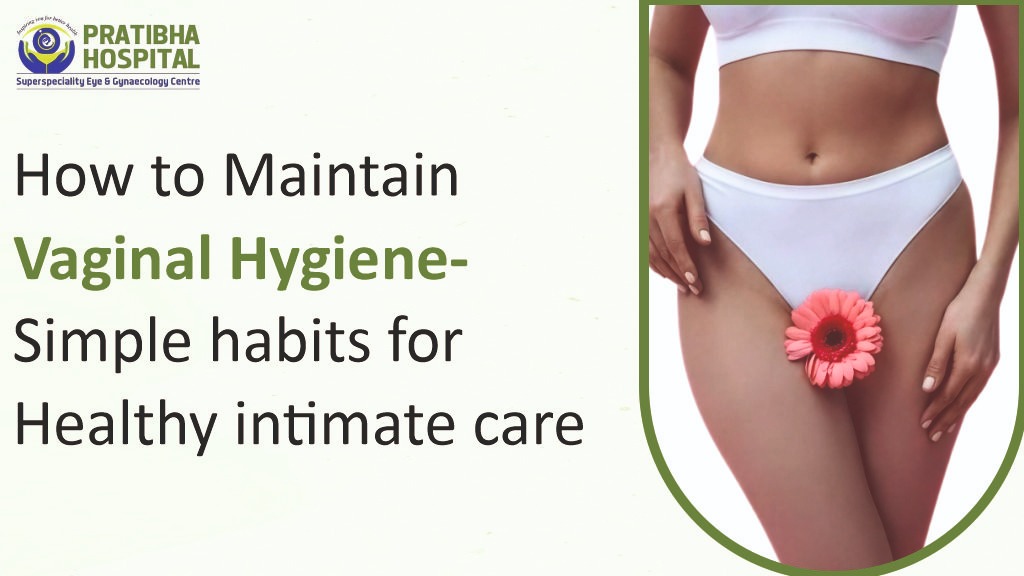How to Maintain Vaginal Hygiene: Tips Every Woman Should Know
Many women feel shy or confused when it comes to vaginal hygiene. Some follow random tips from friends, while others believe advertisements that sell fancy products. The truth is that using expensive washes or sprays is not about to keep your private area clean. It is more about daily habits, healthy food, and knowing what to avoid.
The vagina is a smart organ. It has its own way of cleaning. The natural discharge, good bacteria, and proper pH level protect it from infections. But wrong habits, unhygienic products, or even ignoring basic care can disturb this balance. That’s when problems like itching, smell, or infections start.
In this blog, we will talk about how to maintain vaginal hygiene in simple, practical ways. No complicated words, just clear tips that every woman can follow.
Why Vaginal Hygiene Matters
Vaginal hygiene is not just about feeling clean—it’s closely connected to your overall health and well-being. A healthy vaginal environment is slightly acidic (pH between 3.8 and 4.5), which helps beneficial bacteria like Lactobacillus thrive. These bacteria protect the vagina by preventing harmful organisms from growing.
If the balance breaks, you may face:
- Itching and irritation
- Burning while urinating
- Bad odor
- Strange discharge
- Frequent yeast infections or urinary tract infections (UTIs)
That is why proper care is important. It lowers infection risk, avoids odor, and makes you feel comfortable and confident.
Daily Vaginal Hygiene Habits
Here are some simple things you can do every day:
- Wash with Warm Water
- Use only warm water to wash the area.
- Avoid harsh soaps or strong cleansers inside the vagina.
- If needed, use mild, unscented soap only on the outer part (vulva).
- Use only warm water to wash the area.
- Wear Cotton Underwear
- Cotton underwear lets the skin breathe.
- It absorbs sweat and keeps the area dry.
- Change underwear daily, and after workouts if you sweat a lot.
- Cotton underwear lets the skin breathe.
- Change Pads, Tampons, or Menstrual Cups Regularly
- During periods, change pads every 4–6 hours.
- Tampons should be changed every 3–4 hours.
- Wash menstrual cups with mild soap and hot water before reuse.
- During periods, change pads every 4–6 hours.
- Wipe the Right Way
- Always wipe front to back.
- This prevents bacteria from the anal area entering the vagina.
- Always wipe front to back.
- Stay Hydrated and Eat Healthy
- Drink plenty of water.
- Add yogurt, kefir, and other probiotics to your diet.
- Eat fruits and vegetables to support immunity and vaginal health.
- Drink plenty of water.
Things to Avoid
A lot of women unknowingly harm vaginal health. Here’s what to avoid:
- Overwashing or Douching: It removes good bacteria and disturbs natural pH.
- Scented Sprays, Soaps, or Powders: These can irritate sensitive skin.
- Tight Synthetic Underwear: Traps moisture and heat, causing infection.
- Ignoring Symptoms: Never ignore itching, unusual discharge, or strong odor.
Natural and Safe Ways to Maintain Vaginal Hygiene
You don’t always need chemical products. Natural habits work best:
- Foods for Vaginal Health
- Yogurt and probiotics maintain good bacteria.
- Cranberry juice may reduce UTI risk.
- Leafy greens and vitamin C foods build immunity.
- Yogurt and probiotics maintain good bacteria.
- Hydration
- Drink water throughout the day to flush out toxins.
- Drink water throughout the day to flush out toxins.
- Lifestyle Habits
- Exercise regularly, sleep well, and manage stress.
- These habits help your immune system fight infections.
- Exercise regularly, sleep well, and manage stress.
- Natural Remedies
- Aloe vera and coconut oil can soothe irritation outside (not inside).
- Always consult your gynecologist before trying home remedies.
- Aloe vera and coconut oil can soothe irritation outside (not inside).
Feminine Hygiene Products – Are They Needed?
Many brands sell feminine washes, wipes, and sprays. They claim to keep you fresh. But do you really need them?
- Pros: Some mild, unscented, pH-balanced products may be safe for external use.
- Cons: Most products contain perfumes and chemicals that harm natural vaginal flora.
Doctors mostly recommend plain warm water. If you still want a product, pick a hypoallergenic, fragrance-free option, and use it only occasionally.
Vaginal Hygiene During Menstruation
Periods need extra care because of more discharge and higher infection risk.
- Change sanitary pads every 4–6 hours.
- Do not keep tampons inside for more than 3–4 hours.
- Wash and sterilize menstrual cups properly.
- Avoid scented sanitary products.
Hygiene Tips in Special Situations
- During Pregnancy
- More discharge is normal. Wear cotton underwear and keep the area dry.
- See a doctor if discharge has bad smell or color.
- More discharge is normal. Wear cotton underwear and keep the area dry.
- After Childbirth
- Follow the doctor’s advice for cleaning.
- Use only warm water, no scented products.
- Follow the doctor’s advice for cleaning.
- After Exercise or Swimming
- Change out of wet clothes quickly.
- Shower soon after workout or swimming.
- Change out of wet clothes quickly.
- For Women with Diabetes
- High sugar levels increase infection chances.
- Keep sugar under control and follow strict hygiene.
- High sugar levels increase infection chances.
When to See a Doctor
Sometimes hygiene is not enough. Visit a gynecologist if you notice:
- Strong or fishy smell
- Thick, green, or frothy discharge
- Persistent itching or burning
- Repeated UTIs or yeast infections
Regular check-ups are also important for long-term health.
Conclusion
Learning how to maintain vaginal hygiene is simple. The key is balance. The vagina is self-cleaning, but you must support it with the right habits.
Quick recap:
- Wash gently with warm water.
- Avoid scented products.
- Wear cotton underwear.
- Eat healthy and drink enough water.
- Never ignore unusual symptoms.
Taking care of your intimate health keeps you safe, confident, and comfortable. Small changes in daily routine can protect you from big problems later.
Also read: What to Eat to Stop White Discharge







